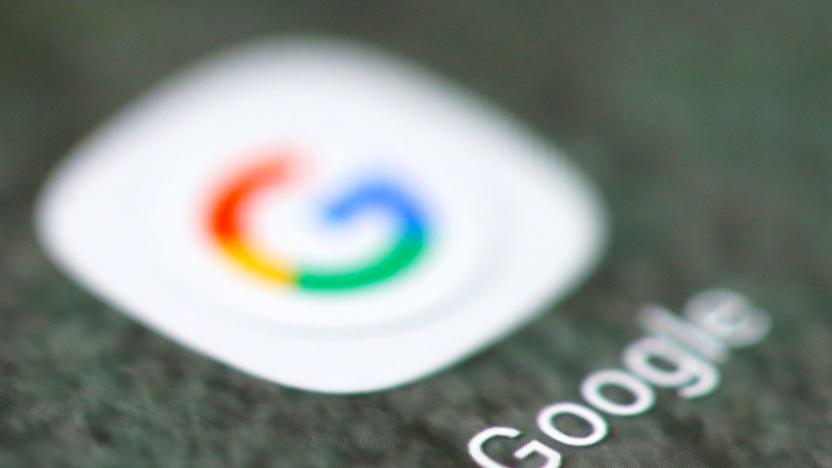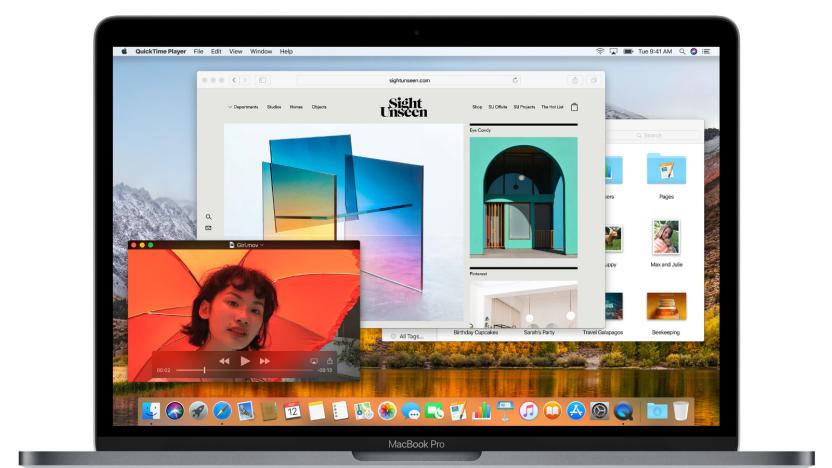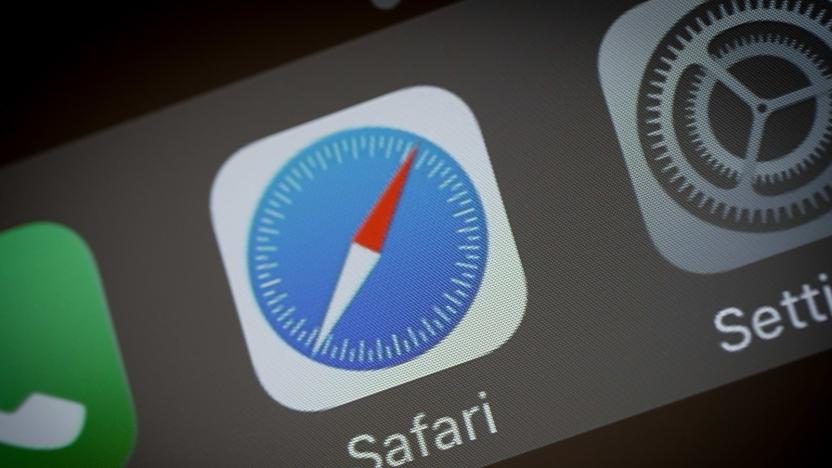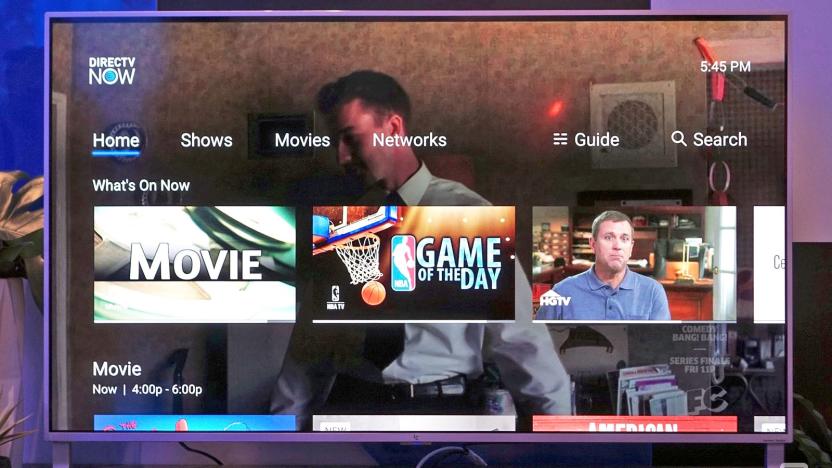Safari
Latest

Google faces UK lawsuit over illegal data collection
Today, a UK-based group called "Google You Owe Us" brought a class-action suit against Google, alleging that it illegally gathered information on users from June 2011 to February 2012. The group is seeking compensation for the 5.4 million Brits who used an iPhone during this period, according to The Guardian.

Apple says 'tears of joy' face is the most-used emoji
In an overview of its differential privacy technology, Apple slipped in some super important data regarding the popularity of its emojis. The document included an image ranking the top 10 emojis among US English speakers and taking the number one spot was the "face with tears of joy" emoji. The red heart and "loudly crying face" rounded out the top three.

Allo web chat now works in browsers other than Chrome
When Google brought its Allo chat app to the web, it only supported Chrome. That partly defeats the point of an app-independent client, doesn't it? Thankfully, Google agrees. It just expanded Allo's web support to get it running on Firefox, Opera and iOS devices (including Chrome and Safari). You do have to start by scanning a QR code on the desktop using your phone, which is more than a little unwieldy, but this does mean you don't have to live within Google's software ecosystem just to avoid a native app. No, this probably won't get you to ditch Hangouts or another messaging app, but it does open the door to those who otherwise wouldn't give it a shot.

Apple’s Safari update secretly mines data to protect your privacy
Apple's newly launched macOS High Sierra may not be flashy on the outside, but there's plenty going on beneath the surface. Admittedly, some of its high-profile upgrades are easier to spot: Like Safari muting autoplaying videos by default. However, another modification to the browser could go unnoticed. As noted by TechCrunch, Safari is now quietly collecting your data. If you opt-in, Apple's differential privacy tech will gather your activity info in order to identify problematic websites. These are the types of murky domains that can debilitate the browser by using too much power, and can even cause it to crash by hogging memory. The tech giant plans to document the popularity of these sites to help it figure out which ones it should tackle first.

Advertisers are upset with Safari's new anti-tracking features
One of the lesser talked about announcements from Apple's WWDC event is that High Sierra's Safari will have something called "Intelligent Tracking Prevention," which uses machine learning to identify ad tracking behavior. Specifically, it'll stop you from being tracked by advertisers as you go from site to site, so that you no longer keep seeing an ad for that thing you looked up on Amazon that one time. As you might expect, however, advertisers are not too happy about this, and a group of them have come forward to condemn the company for its "unilateral and heavy-handed approach" to user privacy. Six major advertising trade associations released a joint letter stating that the new Safari would "create a set of haphazard rules over the use of first-party cookies (i.e. those set by a domain the user has chosen to visit) that block their functionality or purge them from users' browsers without notice or choice." They continue to say that the rules will hurt the user experience and that they're "bad for consumer choice and bad for the ad-supported online content and services consumers love." Apple, however, is firmly convinced that it's doing the best it can for users. In a statement, the company says: "Apple believes that people have a right to privacy. Safari was the first browser to block third-party cookies by default and Intelligent Tracking Prevention is a more advanced method for protecting user privacy." It further states: "Ad tracking technology has become so pervasive that it is possible for ad tracking companies to recreate the majority of a person's web browsing history. This information is collected without permission and is used for ad re-targeting, which is how ads follow people around the internet. The new Intelligent Tracking Prevention feature detects and eliminates cookies and other data used for this cross-site tracking, which means it helps keep a person's browsing private. The feature does not block ads or interfere with legitimate tracking on the sites that people actually click on and visit. Cookies for sites that you interact with function as designed, and ads placed by web publishers will appear normally." This is how ITP works: First-party cookies, which are the ones set by the domain that you visited, are allowed to stick around for 30 days. If you don't revisit it after that, those cookies are purged. Third-party cookies, which are ones set by third-party ad networks, are purged immediately if they're used as tracking cookies. If you interacted with those third-party cookies in a first-party context -- aka they're added when you visited a certain site -- they're allowed for 24 hours. After that, they exist in a partitioned state for 30 days before getting purged. Advertisers, of course, would prefer that this was a user choice rather than one imposed on you by the browser. And, according to Apple, ITP can be turned off. But if you're a user who'd rather not have companies track your browsing habits to show you ads, then you probably won't do that. This is just one problem that advertisers are dealing with. Google is also fighting back against ads with the introduction of a Chrome ad-blocker in early 2018, which should have Chrome users see fewer pop-ups and auto-playing videos. Yet, the Chrome ad-blocker doesn't block all ads; just the annoying and distracting ones.

Spotify no longer streams music in Apple's Safari web browser
If you use Safari to stream Spotify tunes, you're going to need a plan B. Listeners have discovered that Spotify's web player no longer works with Safari. Visit and you'll be asked to either use an alternative browser or fire up the native Mac app. When asked about the abrupt change, the company's customer support could only say that "recent updates" made Safari incompatible. It can't say if or when the feature will come back. We've asked Spotify if it can elaborate, but there's already some speculation as to the possible cause.

DirecTV Now will only stream in Chrome on the web
Heads up, DirecTV subscribers: AT&T's streaming TV service will drop support for Apple and Microsoft's baked-in browsers starting at the end of the month. According to Apple Insider, AT&T has already started directing cord-cutting Mac customers to tune in using Google Chrome. The same goes for anyone still streaming DirecTV on a PC using Internet Explorer.

Apple doesn’t need your personal information to succeed
In 2014, Apple CEO Tim Cook wrote an important letter about how the company makes money. He wrote, "A few years ago, users of internet services began to realize that when an online service is free, you're not the customer. You're the product." If you missed it, that's a dig at Google, which makes most of its money selling ads complete with incredibly rich data about its users. At its WWDC keynote this week, Apple continued to remind its customers (and Google) that it doesn't need your data to make money.

Apple plans to make Safari scrolling a lot smoother
Apple is making changes to its mobile Safari browser that will make scrolling work smoother across all websites, according to posts on Hacker News and Daring Fireball. Right now, regular pages scroll differently on iOS Safari than sites like Reddit that use AMP (Google's accelerated mobile pages). That's because Google uses an iOS technique that allows AMP pages to override the default scrolling, making pages slicker and faster to browse.

Chrome for iOS adds a Safari-like Reading List
As part of its latest update, Google Chrome for iOS just got a so-called Reading List feature, allowing users to save pages for offline viewing. If that sounds familiar, it's because Safari has had a similar feature for years now.

PSVR goes on safari with 'Virry VR' nature documentary
Slowly but surely, PlayStation is releasing more non-gaming offerings for the PSVR headset. Next up is Virry VR, an app that wants to put you within arm's reach of Kenyan wildlife. Among other things, you'll see rhinos bathing and lions eating according to the European PlayStation Blog. The entirety of the video was filmed at Lewa Downs, a UNESCO heritage site home to elephants, Grevy's zebras, hyenas and leopards.

Maliciously crafted video can freeze your iOS device
If you thought last year's iOS text crash bug was a headache, you'd better brace yourself. EverythingApplePro and other users have confirmed that at least one maliciously crafted video is guaranteed to trigger a memory leak and freeze iOS devices, even if they're running something as ancient as iOS 5. All you have to do is play the linked video file in Safari -- your iPhone, iPad or iPod will lock up within a few seconds, forcing you to hard reboot to regain control of your gear. It's so far useful only for cruel pranks (you should be fine afterward), but these kinds of quirks can occasionally be used as part of security breaches.

Twitter test makes Reader mode the default on iOS
For its latest experiment, Twitter has enabled the Apple-built 'Reader' feature by default inside its iOS app. As the Guardian reports, this meanssome, but not all users are seeing simplified web pages when they click on links contained within tweets. The option, which appeared in the mobile version of Safari back in 2011, removes the formatting found on almost any site, giving you a cleaner, arguably more readable layout. The drawback is that you lose the page's visual identity and sometimes, Safari will make a mess of it, giving you a broken or space-riddled article.

Google Safe Browsing makes accessing The Pirate Bay harder
Guess what? There's another speedbump to browsing The Pirate Bay. Rather than internet providers blocking access to the URL (currently thepiratebay.org), certain web browsers are flagging torrent download pages with variations on the following message: "The site ahead contains harmful programs Attackers on thepiratebay.org might attempt to trick you into installing programs that harm your browsing experience (for example, by changing your homepage or showing extra ads on sites you visit.)"

Recently patched iOS security flaw also affects OS X
Last week Apple rolled out a patch for iOS that closed a security flaw that could give attackers control over a device by having a user click a single link. Now, Apple is patching the same hole in the Safari web browser on the desktop, with new updates for the browser as well as OS X Yosemite and El Capitan. Lookout Security and Citizenlab identified the flaw based on a link sent to a human rights activist, and believe the "cyber war" organization NSO Group was selling the exploit to governments like the UAE.

Apple will deactivate Flash by default on Safari 10
You know that Maya Angelou quote that says "Never make someone a priority when all you are to them is an option?" If Flash were a person following that tenet, then it now has to drop Safari from its dwindling list of priorities. In a post on the WebKit blog, Apple engineer Ricky Mondello has revealed that the company is deactivating Adobe Flash by default on Safari 10. That's the version of the browser shipping with macOS Sierra this fall.

Opera's speedy built-in ad-blocking goes wide and mobile
Back in March, Opera introduced its native ad-blocking feature to developers. Today, the feature is available to everyone -- on desktop and mobile. The company claims that compared to Chrome, browsing with its native ad-blocking on is 45 percent faster than Google's browser with third-party ad-blocking extensions running. Beyond that, Opera says that the update makes pages load up to 89 percent faster than without the feature activated.

Apple's latest Safari browser is built for developers
You no longer have to try an OS X beta (or a WebKit nightly build) to see where Apple is going with Safari's under-the-hood features. The tech firm has released a Safari Technology Preview that helps developers work with the latest in web technology. Don't expect to see any major interface shake-ups as a result -- the big improvements in the initial version revolve around newer, faster JavaScript support, and the rest are smaller things like minor HTML updates and a better web inspector. If you craft websites for a living, though, this makes it easy to test your work without living too close to the bleeding edge.

Some iOS 9.3 users can't visit web links
As important an update as iOS 9.3 may be, it's clear that Apple still has to work out a few kinks. Some users are reporting that they can't open web links after the upgrade, whether it's in official apps (such as Mail, Messages and Safari) or, in some cases, third-party apps like Chrome. If you're affected, tapping a link either does nothing or triggers nasty crashes and freezes. Some users report having success by using other apps, toggling JavaScript off and on or uninstalling apps that use Safari extensions, but there don't appear any surefire fixes.

Google Street View takes you on a South African safari
So you've wanted to see African wildlife in its native habitat, but the prospect of booking such an expensive trip makes your bank account weep. What to do? Google can help. It just introduced the Mzansi Experience, a virtual visit to South Africa that uses Street View to give you a sense of the country's grandiose landscape. On top of seeing elephants, leopards and other fauna, it'll take you to everything from Cape Town's Table Mountain through to Durban's Golden Mile. While this still won't be as awe-inspiring as a real safari, it'll require much less effort... and it might even inspire you to go when your finances allow.











